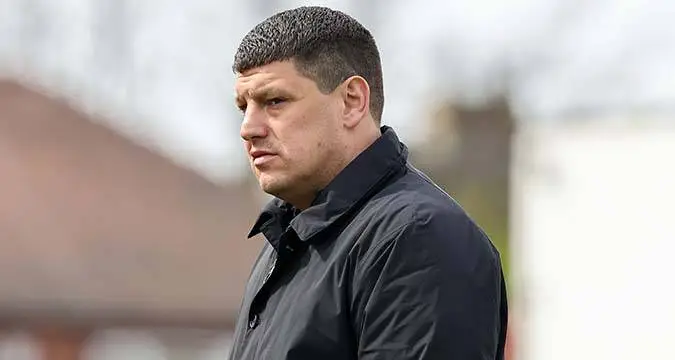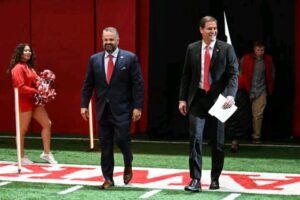
The Second-half Collapse Is A Stark Reminder Of The Challenges Inherent In Competitive Sports And The Need For Unwavering Focus And Resilience.

In a post-match interview that echoed the sentiments of many fans and players alike, Coach Peet expressed his profound disappointment following a disheartening second-half performance. “We simply didn’t turn up in the second half. We let ourselves and the fans down,” he stated, underscoring the gravity of the team’s lackluster display after halftime. The comment encapsulates the frustration that has reverberated throughout the fanbase and the broader sports community.
The game began with a promising edge. From the first whistle, the team exhibited a level of energy and cohesion that hinted at a strong performance. The first half saw the team capitalizing on key opportunities, with a well-executed game plan and a spirited effort that left fans optimistic and engaged. However, the narrative took a drastic turn as the teams emerged from the locker rooms for the second half.
The change in momentum was almost palpable. Where the first half had been marked by aggressive play and tactical precision, the second half saw a troubling decline. The team, which had been so sharp and focused, seemed to lose its rhythm and resolve. Passes went astray, defensive errors became frequent, and the once-cohesive unit began to fracture under pressure. Opponents, sensing the shift, capitalized on every mistake, turning what had been a competitive game into a one-sided affair.
Coach Peet’s disappointment is not just about the result but the manner in which the team approached the second half. In high-stakes games, maintaining performance levels throughout all segments of the match is crucial. The inability to sustain the intensity and quality of play highlights a significant area for improvement. For Peet, the letdown was not just a matter of tactics but also of mindset and mental resilience.
“We came out with the right intentions and showed what we’re capable of in the first half. But the second half, we just didn’t show up. That’s the most disappointing part,” Peet continued, reflecting on the sharp contrast between the two halves. This inconsistency is alarming for a coach who has previously emphasized the importance of mental fortitude and consistency.
The impact of such a performance extends beyond the immediate result. Fans, who had rallied behind the team with unwavering support, were left disheartened. The hope and excitement that filled the stadium during the first half were replaced by a growing sense of frustration and disillusionment. For many supporters, the second-half collapse felt like a betrayal of the team’s potential and the loyalty of the fans.
In analyzing the root causes of the second-half drop-off, several factors emerge. Fatigue, tactical adjustments by the opposition, and possibly a lapse in concentration all played roles. However, addressing these issues requires more than just superficial changes; it demands a thorough examination of the team’s approach to high-pressure situations and the development of strategies to maintain performance under duress.
Looking forward, Coach Peet and his staff face the challenging task of rebuilding the team’s confidence and resilience. The focus will likely be on reinforcing mental toughness and ensuring that players are equipped to handle the demands of both the physical and psychological aspects of the game. Additionally, refining game plans to adapt effectively to shifting dynamics during matches will be crucial.
The road ahead is one of reflection and adjustment. For Coach Peet and his team, the priority will be to dissect the shortcomings of the second half, implement corrective measures, and regain the form that made the first half so promising. Fans will be watching closely, hopeful that the lessons learned from this setback will lead to a more consistent and formidable performance in future games.
In sum, Coach Peet’s words capture a pivotal moment of reckoning for the team. The second-half collapse is a stark reminder of the challenges inherent in competitive sports and the need for unwavering focus and resilience. As the team regroups and prepares for upcoming fixtures, the aim will be to convert this disappointment into motivation, striving to deliver performances that live up to the high standards set in the initial stages of the game.







